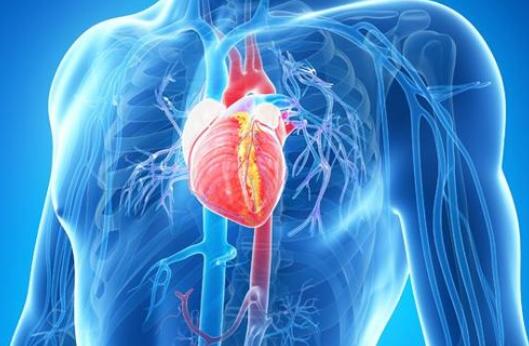The heart beats in the mother’s belly since the human body is still in the embryonic period, and the mother has an item to listen to the fetal heart rate every time during the pregnancy examination in the late pregnancy. The heart is one of the busiest and most important organs in the human body. The heart works 24 hours a day, and it stops working until death. Therefore, a strong heart can have a good body.
Cancer cells are a kind of mutant cells, which are different from normal cells. They have the characteristics of infinite proliferation, transformation and metastasis. The excessive division of immortal cancer cells will invade the surrounding normal tissues, and even spread to other parts of the body along with the circulation or lymphatic system in the body.
The top ten diseases in the world are heart disease, and the second is malignant tumors (cancer). So, can malignant tumors appear in the heart? Can people suffer from “heart cancer”? Modern medicine is advanced, and there are more health checks for the human body. Various cancers, such as liver cancer, stomach cancer, and cervical cancer in women, can be screened in advance. But why do doctors never recommend that people take heart cancer cell testing during physical examinations?
In fact, there is basically no possibility of cancer in our heart, so there is no need to do cardiac cancer detection. Let’s first understand cancer. Malignant tumors are mainly divided into two categories, one is cancer and the other is sarcoma. Malignant tumors from epithelial tissues are called carcinomas. All cancers are malignant tumors, but tumors are not necessarily cancers.
Cancer cells are in the epithelial tissue, proliferate indefinitely and destroy the surrounding tissue cells. But the heart has no epithelial tissue. The cardiomyocytes that make up the heart are called “terminally differentiated cells”, which means that these cells no longer divide and proliferate after a person is born, and their number remains unchanged until the heart stops beating. Therefore, the phenomenon of continuous division and unlimited proliferation of cancer cells cannot appear in the heart, and it is basically impossible for cancer cells to grow on the heart.
Cancer usually metastasizes in the later stage. Cancer cells are easily detached from the tissues, and continue to grow and spread with the circulation of the lymphatic system and blood system to other organs. Many patients develop from one cancer cell to several cancer cells throughout the body. Everyone knows that the heart is the departure station and return station of blood. Will this place be eroded by metastatic cancer cells?
Cancer cells must meet certain conditions if they want to survive in the heart. It takes time from landing to rooting. The heart is very powerful and blood circulates very fast. Cancer cells are usually taken out of the heart without a chance to stay. Therefore, the heart is also an organ for metastasis of cancer cells. Although the heart has the function of metastasizing cancer cells, it does not mean that there is no tumor in it. In addition to the myocardium, there are many blood vessels in the heart. Angiosarcoma may also appear on the heart. Medically, angiosarcoma is also the most common type of heart disease. In addition, rhabdomyosarcoma in the middle of the myocardium will also appear on the heart. This probability is very low and generally occurs in infants and young children.
Studies have also shown that the heart does not become cancerous because the temperature of the heart is too high. The most suitable temperature for cancer cells is 35 degrees Celsius. When the temperature exceeds 39.6 degrees Celsius, the cancer cells will be “burned.” The heart keeps beating, and the temperature is naturally higher than that of ordinary organs. In the human body, many organs are not easy to get cancer. For example, the spleen and small intestine are places where cancer cells don’t like it. In addition to the temperature of these organs is not the temperature that cancer cells like, the inability of cancer cells to survive is also related to the “cancer suppressor substances” secreted by the organs.
Therefore, the cancer has no chance to grow in the heart, and the metastasis cannot stay. Although cancer basically does not occur in the heart, even if the incidence of malignant tumors is very low, we must pay attention to avoid life-threatening consequences.






